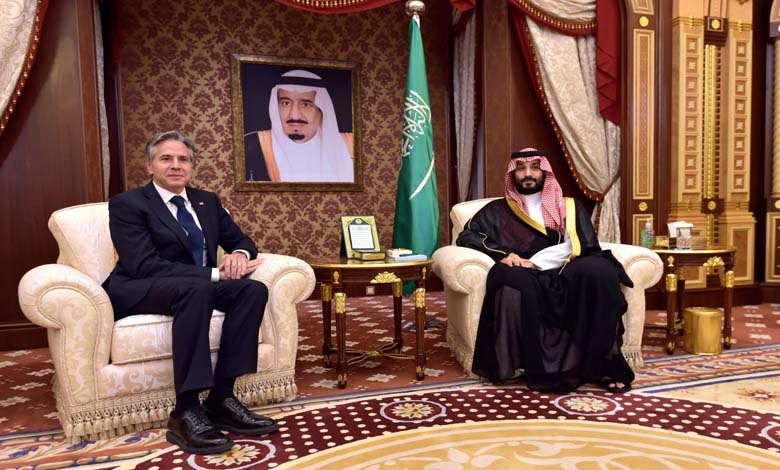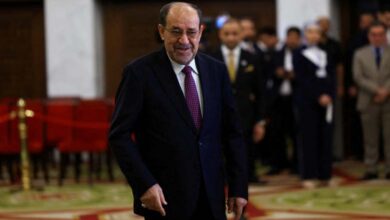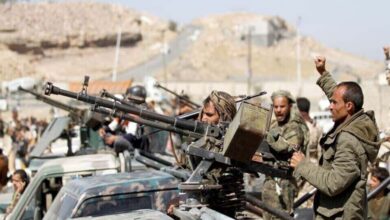Washington Drops Normalization Condition with Israel in Response to Saudi Nuclear Demands

The United States’ abandonment of the normalization condition for signing a peaceful nuclear energy agreement comes just days ahead of Trump’s scheduled visit to the Kingdom, amid signs the talks could mark a new chapter in bilateral relations.
Washington has dropped the requirement for Saudi Arabia to sign a peace agreement with Israel — which would have led to the normalization of relations — in order to finalize a civil nuclear cooperation deal. This is the latest indication that President Donald Trump’s administration is seeking to win over Riyadh and move past the tensions that marked the U.S.-Saudi relationship under former President Joe Biden.
-
Washington seeks to revive the normalization deal between Saudi Arabia and Israel
-
Washington Seeks Normalization Between Israel and Saudi Arabia Before Presidential Elections
This development, confirmed by two official sources, comes ahead of the U.S. president’s visit to the Kingdom next week, amid signs that talks between Trump and Saudi Crown Prince Mohammed bin Salman could launch a new phase in the partnership between the two countries.
Abandoning the demand for diplomatic ties between Saudi Arabia and Israel is a major concession from Washington. Under President Biden, nuclear negotiations were part of a broader U.S.-Saudi agreement tied to normalization and Riyadh’s aim to sign a defense treaty with Washington.
The Kingdom has repeatedly insisted that it will not recognize Israel without the establishment of a Palestinian state, which frustrated Biden’s attempts to expand the Abraham Accords signed during Trump’s first term. Under those accords, the UAE, Bahrain, and Morocco normalized relations with Israel.
-
Trump’s Plan for Gaza Closes the Door to Saudi-Israeli Normalization
-
Iran explicitly warns the U.S. of the consequences of supporting an Israeli attack on it
Progress toward Saudi recognition of Israel has stalled due to anger across Arab nations over the ongoing war in Gaza, while nuclear talks have faltered over Washington’s non-proliferation concerns.
One of the key points of contention is Section 123 of the U.S. Atomic Energy Act, which permits cooperation with countries developing civilian nuclear capabilities, but sets standards to prevent proliferation — including restrictions on uranium enrichment.
Saudi Energy Minister Prince Abdulaziz bin Salman stated that the Kingdom intends to enrich uranium and sell it. One of the sources said Riyadh is still not ready to sign the so-called 123 Agreement, which prohibits enrichment or reprocessing of plutonium — two pathways to producing nuclear weapons.
-
No Defense Deal Between Washington and Riyadh Without Normalization with Tel Aviv
-
Sullivan Brings Defense Deal to Saudi Arabia to Encourage Normalization with Israel
In a possible signal of a new approach, U.S. Energy Secretary Chris Wright said during his visit to the Kingdom in April that Saudi Arabia and the United States are moving along a “pathway” toward a civil nuclear agreement, affirming that signing an agreement under Section 123 would be a key condition in any deal.
The same source added that one proposed solution under discussion is a so-called “black box” agreement, under which only a U.S. team would have access to the uranium enrichment facility on Saudi soil.
The Kingdom has ambitious nuclear energy plans as part of its Vision 2030, which aims to diversify its economy away from oil. While the initial goal was to reach 17 gigawatts of nuclear capacity by 2032, this target has since been revised.
-
Autumn Winds – 3 Factors tensioning relations between Biden and Netanyahu
-
Saudi Arabia still interested in normalization with Israel after Gaza War
Early reports from the program mentioned plans to build up to 16 reactors over the long term. The current focus is on the successful development and operation of the first nuclear power plant, and the timeline for future expansion will likely depend on experience gained from this initial project.
Saudi Arabia aims to generate 50 percent of its electricity from renewable sources by 2030, with the remainder coming from natural gas. Riyadh is also relying on energy to achieve its goals in emerging technologies such as artificial intelligence.
The Kingdom has joined the Treaty on the Non-Proliferation of Nuclear Weapons and has a safeguards agreement with the International Atomic Energy Agency. However, there have been discussions about moving toward a comprehensive safeguards agreement.
-
Washington is considering lifting the ban on the sale of offensive weapons to Saudi Arabia
-
Biden warns Israel of losing international support due to targeting civilians in Gaza












